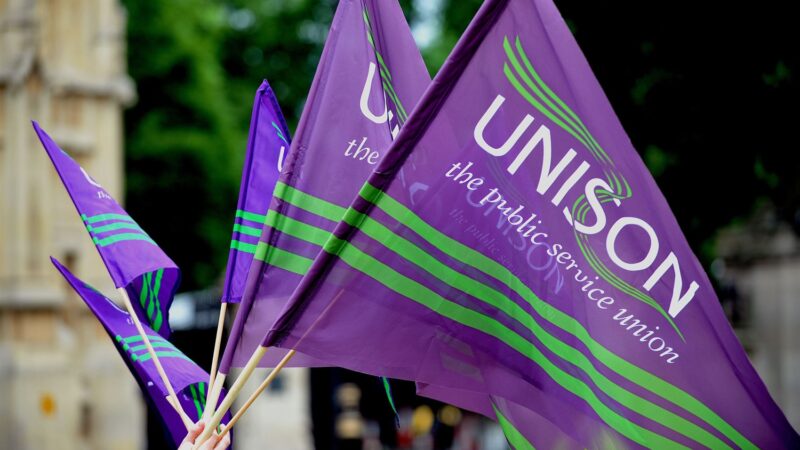
Just as one leadership election ends, another appears. Now that Labour and the Liberal Democrats have finished choosing new leaders, it’s the turn of the UK’s ‘big three’ unions to elect new general secretaries. For the vast majority of the country who aren’t invested in union politics, this may seem irrelevant. But these elections will have consequences for Labour that could shape Keir Starmer’s tenure as leader, and none more so than the race at public service union UNISON.
UNISON and its outgoing general secretary Dave Prentis have been hugely supportive of Keir Starmer, endorsing him in the Labour leadership election this year and voting in his favour on a national executive committee that the new leader doesn’t fully control. Starmer has a narrow majority on Labour’s governing body and, given the unpredictability of the upcoming NEC elections, cannot afford to lose any supportive reps.
Support from a union translates into more than just kind words and internal votes. Labour receives nearly £5m in a normal year from trade unions, and received £950,000 from UNISON alone in 2019. During a general election, that figure skyrockets and makes up a large part of the party’s war chest. Although fees from Labour’s large membership base have reduced the reliance on union funding, their donations are still a lifeline for the party and, without them, they could struggle to keep the lights on.
All but one of the candidates in the UNISON race have directly said they want to see a change in their financial relationship with Labour. Roger McKenzie and Paul Holmes have said they would use the general secretary position to push Labour policy further to the left. Frontrunner Christina McAnea, understood to have the support of the current union leadership, has distanced herself from that position, but has talked about putting union concerns first in negotiations with Labour.
Whether any candidates would actually be able to reduce the party donation each year is not certain. The financial connection to Labour is handled by a separate body called UNISON Labour Link, and its members all get to vote on proposed changes. They would be overwhelmingly likely to block any attempts to defund Labour.
Even slight changes to the status quo could have a serious effect, however. Former Labour general secretary David Triesman has described how in 2002, just a few delays in payments from disaffected trade unions left the party so heavily in debt that it was unable to pay staffers’ wages. That funding problem is said to be one of the factors that forced the party under Tony Blair to have a much cosier relationship with corporate donors and supporters.
Any changes in approach could have a lasting effect given how long trade union leaders can be in the post. UNISON’s current general secretary has served for 20 years. Whoever succeeds Prentis – whether they represent continuity or change – will define Labour’s relationship with the union far into the future.




More from LabourList
Nudification apps facilitate digital sexual assault – and they should be banned
Diane Abbott suspended from Labour after defending racism comments
Labour campaign groups join forces to call for reinstatement of MPs